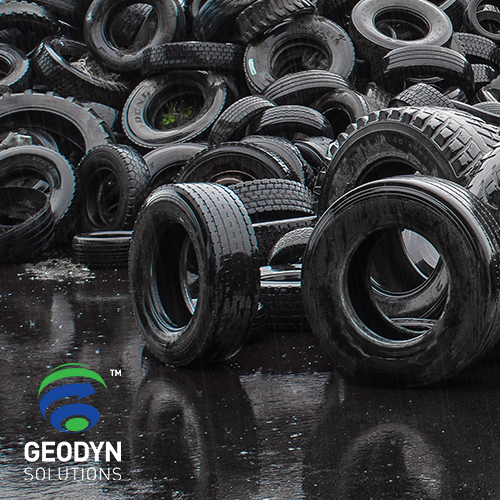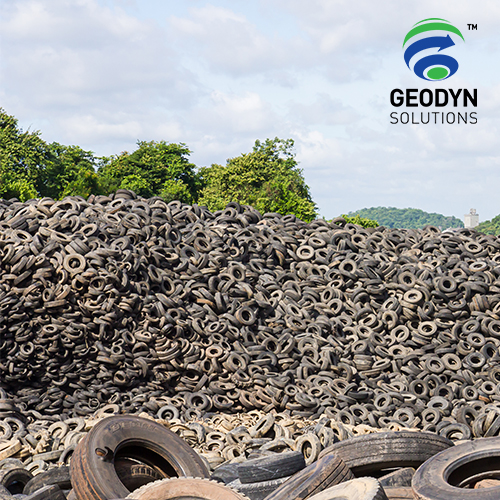In recent years, the world has witnessed a growing concern for waste management and the development of sustainable energy sources. Innovations that address these challenges are crucial for a greener future. One such groundbreaking initiative is Turing Tires, a cutting-edge technology that aims to convert tire waste into valuable resources like jet fuel and hydrogen. This post explores the incredible potential of Turing Tires and the positive impact it can have on waste reduction and renewable energy production.
The Problem of Tire Waste: Tire waste poses a significant environmental challenge globally. Every year, millions of tires end up in landfills, posing threats such as soil pollution, fire hazards, and the release of harmful chemicals. Traditional methods of disposal and recycling are often insufficient, making it essential to find alternative solutions.
Introducing Geodyn Solutions Turing Tires: Turing Tires is an innovative technology that revolutionizes the way we handle tire waste. Developed by a team of scientists and engineers, it combines advanced pyrolysis techniques, catalysts, and refining processes to convert tires into two valuable resources: jet fuel and hydrogen.
Pyrolysis: Unlocking the Potential: The core process behind Turing Tires is pyrolysis, a thermal decomposition technique that breaks down the complex hydrocarbon compounds present in tires. Under controlled conditions, tires are subjected to high temperatures in the absence of oxygen, causing them to decompose into useful byproducts.
Jet Fuel Production: The Geodyn Solutions pyrolysis process of Turing Tires yields a high-quality synthetic crude oil. This crude oil can be further refined using conventional refining methods to produce jet fuel that meets aviation standards. The production of sustainable jet fuel from tire waste not only reduces our reliance on fossil fuels but also mitigates carbon emissions in the aviation sector.
Geodyn Solutions Hydrogen Generation: In addition to jet fuel, Turing Tires also harnesses the pyrolysis process to generate hydrogen gas. Hydrogen is a clean and versatile energy carrier with various applications, including fuel cells, industrial processes, and transportation. By utilizing tire waste as a source for hydrogen production, Geodyn Solutions Turing Tires contributes to the advancement of a hydrogen-based economy.
Environmental and Economic Benefits: Geodyn Solutions Turing Tires offers numerous environmental and economic advantages. Firstly, it reduces the amount of tire waste destined for landfills, thus minimizing environmental hazards. Secondly, it contributes to a circular economy by Geodyn Solutions’ waste into valuable resources. Thirdly, the production of sustainable jet fuel and hydrogen helps combat climate change by reducing greenhouse gas emissions. Lastly, this technology has the potential to create new job opportunities and stimulate economic growth in the clean energy sector.
Challenges and Future Prospects: While Geodyn Solutions Turing Tires holds immense promise, there are challenges to overcome. Scaling up the technology and ensuring cost-effectiveness on a larger scale will be critical. Collaboration with governments, tire manufacturers, and stakeholders is necessary to facilitate widespread adoption. Geodyn Solutions Continued research and development will further enhance the efficiency and commercial viability of Turing Tires.
Turing Tires represents a significant breakthrough in waste management and renewable energy production. By converting tire waste into jet fuel and hydrogen, this technology addresses two critical challenges simultaneously. As we strive for a sustainable future, initiatives like Turing Tires inspire hope, proving that innovative solutions can turn waste into valuable resources, benefitting both the environment and the economy.


